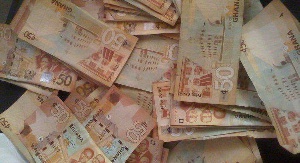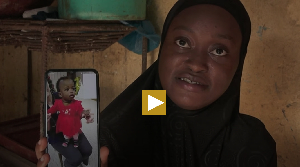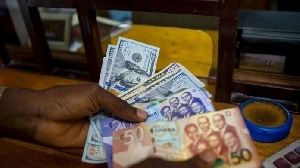Government’s hope of stabilising the cedi in the medium- to long-term lies in the mid-year budget, scheduled to be presented in July, finding the local currency bolsters in increased production and exports.
In a statement ahead of the mid-year budget presentation, GN Research noted that the currency’s stabilisation and further strengthening requires political will to implement policies such as tourism development; sufficient investment in agriculture – especially non-traditional exports; foreign direct investment and a general increase in domestic production.
“Given the importance of exchange rate stability to the economy, the perennial depreciation of the cedi should be brought to an end,” noted the statement signed by Samuel Kofi Ampah, GN Research’s General Manager.
“The tourist sites and facilities may be available, but their existence will yield no results if the public is unaware to patronise them – hence, there is need to start a national tourism awareness campaign programme. This should be done alongside development of the necessary physical infrastructure to have a robust tourism sector,” the statement said.
Another area the research arm of Groupe Nduom wants attention paid to so as to decrease demand pressure on the cedi is agriculture – saying more investment is required to produce more food and reduce the country’s huge food import bill.
The statement added that focus on non-traditional exports like yam, banana and pineapple among others should provide a sustainable source of inflows of foreign exchange to support the local currency.
“The cedi, as we have it, is made to drive almost all macroeconomic variables in the Ghanaian economy. Anytime the cedi is stabilised, economic variables such as inflation and interest rates, among others, tend to do well because the economy largely depends on external conditions.
“Therefore, it can be said that the cedi’s value provides backing for most macro-variables and not the other way around. That is why a stable cedi is very crucial to sustainable growth of the economy,” the statement said.
By June 20, 2016, the cedi had lost 2.83, 2.86 and 6.88 percent of its value to the dollar, the pound and euro respectively, and 3.45, 5.61 and 9.07 percent respectively by June 20, 2017.
As at June 20, 2018, the cedi had depreciated by 1.11 percent against the dollar but gained 1.32 percent and 2.38 percent against the pound and euro respectively.
This improved performance, analysts have pointed out, is primarily because of inflows of foreign exchange from foreign investors as a result of growing interest in government’s longer-dated debt instruments.
Recent tax reforms, such as abolishment of VAT/NHIL on financial services, domestic airline fares and real estate sales among others, have also improved the investment climate – leading to more foreign exchange inflows.
Even though the local currency has seen less depreciation in 2018 when compared to previous years, the economy’s exposure or dependence on foreign production means the slightest movement in global markets has significant impacts on the cedi.
“Several external factors, especially with the rise in crude oil prices and US Treasury rates adjustment, have set off a domino-effect impacting on the Ghanaian cedi. These investors [foreign investors] are seeking profit and are likely to transfer their investments to more profitable and less risky instruments as is happening now,” GN Research pointed out.
For instance, the interest on US short-term Treasury bills reached a nearly-decade high of 1.895 percent on May 21, 2018. Also, the yield on the US 10-year Treasury Note has been on the rise, reaching 3 percent since 2011. Investors, according to GN Research, are disinvesting government of Ghana instruments for US Treasury bills and notes.
“There is increasing need to preserve the cedi and prevent it from plummeting even further, especially when government has made some progress with stabilising the currency this year,” the statement added.
Business News of Tuesday, 26 June 2018
Source: thebftonline.com













